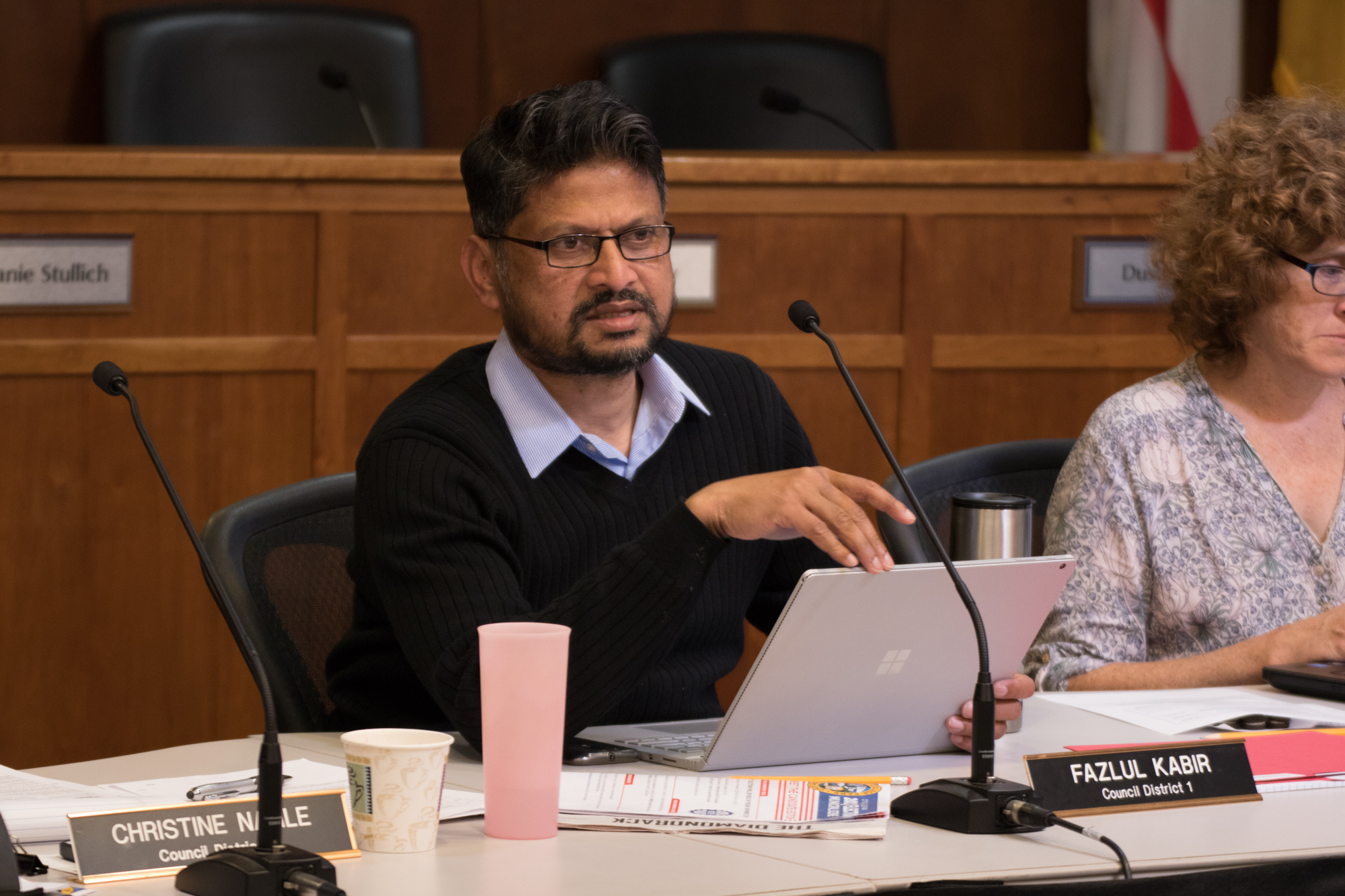By Isabel Cleary
For The Diamondback
College Park District 1 Councilman Fazlul Kabir has been working to provide the community with more immigrant resources since he moved to the city in 2003.
Kabir immigrated to Canada from Bangladesh before coming to the United States in 1998.
“One of the barriers immigrants always have is the language barrier,” Kabir said. “They do struggle sometimes to navigate through the rules and the codes of the College Park government, things like code enforcement, tax collection, putting out the trash, getting city permits and licenses.”
In January 2017, the City of College Park decided to continue following sanctuary city policies, which were outlined by Prince George’s County officials and police. Jurisdictions following sanctuary guidelines limit cooperation with federal government deportation efforts.
The city also wants to redesign its website to include accommodation for residents who speak different languages. Local officials and neighborhood communities are also hosting block parties to bring the city’s immigrant community and longtime residents together, Kabir said.
“Some of our council members are reaching out within their own communities and organizing parties,” said Barbara Pando-Behnke, co-chair of the One College Park Coalition. “The purpose of that is to establish that trust at a more personal level, at a neighborhood level.”
Mayor Patrick Wojahn formed the One College Park Coalition in 2016. The group, which first met in October 2016, promotes inclusion and diversity within the city.
The group hosted a forum in September with representatives from Liberty’s Promise and the Latin American Youth Center to discuss better ways to reach the immigrant community.
“We have brought together some of the people who provide services to immigrants in College Park to talk about the needs of immigrants,” Wojahn said. “We realized that it doesn’t really happen that often that the different groups that provide services to immigrants come together and talk to one another.”
Despite these efforts, some individuals who work, live and enjoy the city’s amenities said the city could be doing more. Montgomery County resident Jerry Burton, who works in College Park, said he supports sanctuary cities.
“It’s a sanctuary city and that’s a lot right there,” Burton said. “They are allowing immigrants to reside here, pretty much with no questions asked.”
But, he said, there needs to be additional resources.
“Prince George’s County doesn’t do enough,” Burton said. “It’s not College Park’s fault, but the county could do more. They probably don’t because they aren’t getting the support from the federal government.”
Kabir said he wants the city to provide information booklets in other languages and begin after-school programs to teach English to community members who want to learn the language.
The city should be reaching out to the immigrant community, instead of waiting for immigrants to reach out, Kabir said. However, he said he is humbled and grateful for the community’s general love and acceptance of immigrants.
Not everyone in the area supports College Park’s increased efforts, though. William Whichard, a resident of nearby Riverdale Park, said “the city should be encouraging … citizenship to the extent that is practice.”
Whichard said he did not support the city’s attempt to allow non-U.S. citizens to vote in local elections. The city appeared to have passed this proposed charter amendment back in September, but days after the vote the council said the proposed change didn’t actually pass, because a policy in effect since June stated six affirmative votes were necessary to pass changes to the city charter.
Last week, however, the council announced that the six-vote requirement violates state law. The noncitizens voting measure still did not pass.
After the initial announcement the measure would not be adopted, Wojahn said, “At this point, what I would like us to do is move on and explore other ways that we can work with the immigrant community in College Park, help ensure that they do feel fully part of our community.”



